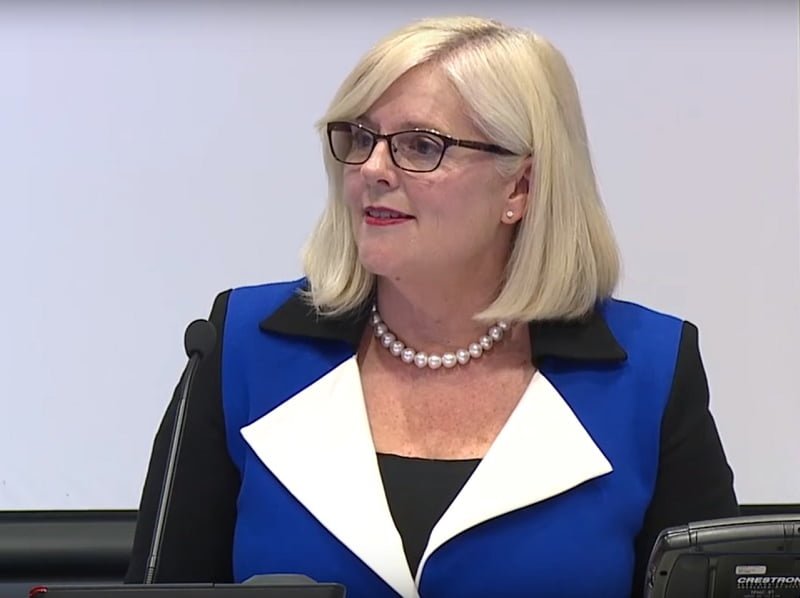The suspension of US President Donald Trump from a number of social media platforms has kicked off a muddled political storm in Australia, with a parliamentary group set to be launched to push for further regulation of the tech giants.
Following the violent storming of the US Capitol last week, Mr Trump was banned from Facebook, Instagram and Twitter. This led to significant debate in Australian politics over censorship and misinformation on social media, with politicians from both sides of the aisles calling for more transparency and stricter regulations for the likes of Facebook.
Australian Competition and Consumer Commission (ACCC) chair Rod Sims, who has been driving the government’s crackdown on big tech, has also said that more needs to be done and further oversight is needed of decisions made by these big tech firms.

Now more than 50 MPs have joined a yet to be launched “parliamentary friends of making social media safe” group, led by Victorian Nationals MP Anne Webster and NSW Labor MP Sharon Claydon.
Industry Minister Karen Andrews has thrown her support behind the new group, saying social media companies need to be more transparent about their decision-making.
“There is a deeper question here that we need to start considering, which is the consistency, the fairness of these various rules. And what is that threshold? There have been many instances of comments that have been taken down from various platforms, but yet in some instances, these platforms are very quick to act when it seems as if the subject content is something that they don’t personally agree with,” Ms Andrews told 3AW.
“That is unfair, it is inconsistent, and it lacks the transparency that we are looking. The conversation really is about social media ethics.”
The new parliamentary group is about starting that conversation, Ms Andrews said.
“We really need to make sure that we listen to what the Australian public is saying as a parliamentary group. So it’s a group of MPs that have come together because they have strong views on social media,” she said.
“The first thing that the parliamentary group will do is look at what the issues are and how best to prosecute that. But of course, as a government we can and will continue to take action, quite aside from whatever advice comes through from that parliamentary group.”
In an interview with the Nine newspapers, ACCC chair Rod Sims said further regulation may be needed around this issue.
“Clearly the digital platforms do have some control over what we see and read. How much we can leave it up to the digital platforms…is one of the defining questions we have to face. We definitely need the government to get to grips with this; we can’t just leave it with the digital platforms,” Mr Sims said.
A number of Coalition ministers raised concerns with the banning of Mr Trump from social media platforms, including acting Prime Minister Michael McCormack and Treasurer Josh Frydenbergy, while former Nationals Leader Barnaby Joyce called on the tech giants to remove more content from their platforms.
The sometimes confusing debate has straddled freedom of speech, censorship and the role of tech companies in policing their own platforms, and how much say governments should say in this.
Labor MPs, including shadow assistant minister for cybersecurity Tim Watts, have largely backed Facebook and Twitter’s decision to remove Mr Trump,
“Major social media companies have self-regulatory policies that align pretty well with norms in democractic societies and they are right to enforce them when breached, whether for users inciting violence or otherwise,” Mr Watts told InnovationAus.
“Social media platforms have a responsibility to stop people from using their platforms to incite violence, engage in hate speech or spread dangerous medical misinformation during a pandemic.”
Mr Watts also called on the government to take a similar approach and rein in a number of Coalition members, including Craig Kelly and George Christensen, posting unverified and dangerous conspiracies on social media.
“Scott Morrison has a similar responsibility to show leadership and stop his MPs from sharing dangerous conspiracy theories online. The Prime Minister should make it clear that he expects his MPs not to promote dangerous conspiracy theories, he said.
“If they can’t agree to this, he should make it clear that he doesn’t want to be associated with them and seek their disendorsement.”
Shadow home affairs minister Kristina Keneally also called on the federal government to not use any cloud hosting providers that offer services to controversial social media platform Parler, after AWS banned the company.
“Government should use its customer power to make clear that it will not use internet hosting / cloud providers that host services like Parler that allow people to incite violence and plan terrorist attacks. Those that don’t follow suit and continue to provide services to these groups are complicit in their actions,” Senator Keneally tweeted.
The post Trumpian debate over social de-platforming appeared first on InnovationAus.
This post was originally published on InnovationAus.